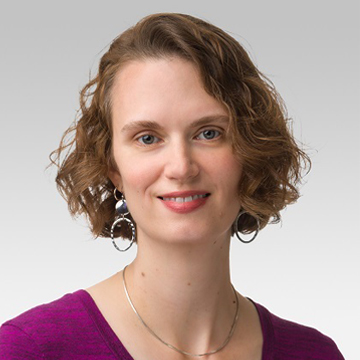RAMP-ing Up: Research Illustrates Power of Novel Mentorship Program
The benefits of mentorship within an academic medical setting aren’t reserved for students and trainees. A recent study published in the Journal of Clinical and Translational Sciences found that pairing junior faculty members with a senior methodologic mentor had significant benefits for both.
Researchers specifically examined the Northwestern University Clinical and Translational Sciences (NUCATS) Institute’s Research Design Analysis Methods Program (RAMP) for early career research faculty. In the time between its launch in 2015 and 2019, RAMP provided an opportunity for eight early career faculty members participating in the Multidisciplinary Career Development Program (KL2), to be paired with individually selected mentors. These mentors provided guidance in methodologic areas for which each KL2 Scholar had minimal formal prior training, in fields such as biostatistics, epidemiology, and informatics. Mentees in the study met with their faculty mentors a minimum of once a month for at least a full academic year.
Co-directed by Leena Sharma, MD, and Tamara Isakova, MD, MMSc, the NUCATS KL2 provides career development resources (formal coursework, peer mentoring and career guidance) to scholars across disparate areas of expertise as well as access to the RAMP program. KL2 awardees also receive salary support and other resources to ensure protected time for mentored research and didactic training in clinical research.
Among two-dozen previous KL2 scholars, all but one remains engaged in clinical and translational science research. Since 2008, KL2 program alumni have authored or co-authored nearly 1,000 publications.

The participants reported really positive experiences with the program and RAMP mentees reported higher confidence in their ability to select appropriate, up-to-date, and novel research methods when compared to other faculty on K awards.”
The study’s lead author Laura Rasmussen-Torvik, PhD, chief of Epidemiology and associate professor in the Department of Preventive Medicine, lauds RAMP’s success, saying, “The participants reported really positive experiences with the program and RAMP mentees reported higher confidence in their ability to select appropriate, up-to-date, and novel research methods when compared to other faculty on K awards who were not participating in the RAMP mentors program.”
Lisa VanWagner, MD, MSc, a current KL2 scholar, would “absolutely recommend” the program.
“I loved learning from others with a different perspective and background who challenged me on how to think more critically about my research questions,” says VanWagner. “It is an invaluable experience and the tools that I learned and relationships that I built have continued to be of value in my ongoing research.”
Amanda Saratsis, MD, another current scholar, adds: “Some of the most meaningful experiences in this program came from the guidance and mentorship of senior faculty. Their selfless commitment to the career development of junior faculty has been essential to our success, and for this I am sincerely grateful.”
Rasmussen-Torvik is thrilled by the positive results of the study: “It is really gratifying to have both qualitative and quantitative information suggesting this program is of benefit to the participants.”
RAMP’s success has also given Rasmussen-Torvik a chance to reflect on why mentoring is so critical in medical research. “Methodologic mentoring is increasingly important because of the increased focus on rigor and reproducibility from the National Institutes of Health (NIH) and the increased recognition of the importance of team science — science that pulls from many different disciplines,” she says.
Rasmussen-Torvik was joined by other NUCATS Institute authors: Lauren Daniels, Keith Herzog, Emily Traw, Michael Fleming, Richard Pope, Donald Lloyd-Jones, and Leah Welty.
Rasmussen-Torvik is excited about the expansion of RAMP to include K-level faculty members applying for diversity supplements. The KL2 program recently released a request for applications for 2021. Interested individuals can learn more here.
Written by Morgan Frost




